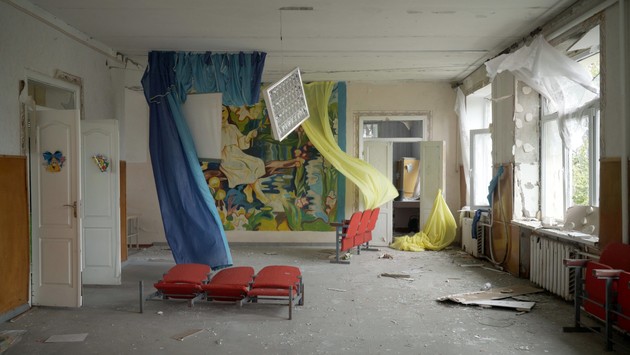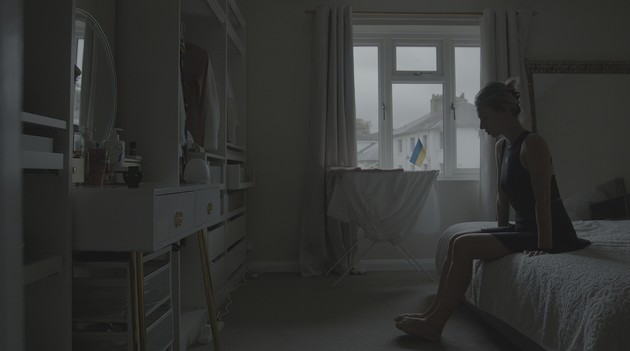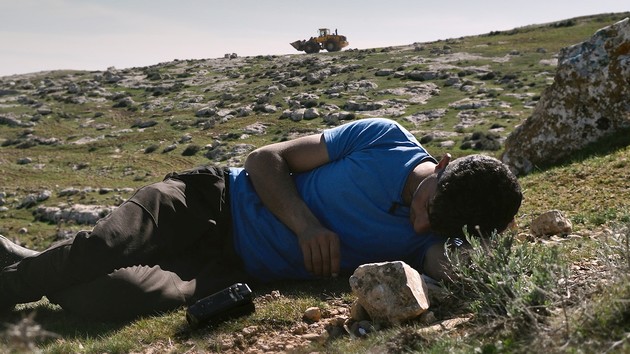Political Festival Cinema

Intercepted (© Christopher Nunn)
War in Ukraine
The Berlinale sees itself as a political festival, although it often remains unclear what is actually implied by this. What makes a film "political"? A broad concept of politics is frequently used, which is hard to define in fiction films. The documentary film is a different story.
The war in Ukraine has been a prominent topic in Berlin since last year. Two remarkable films co-produced by Arte in the "Generation Ukraine" series attracted a lot of attention. "Intercepted" (director: Oksana Karpovych, Canada, France, Ukraine 2024) records disturbingly brutal messages sent home by Russian soldiers. However, certain scenes showing the correct treatment of Russian prisoners of war in Ukraine give the film an unnecessary propagandistic edge. The Ecumenical Jury awarded it a Commendation.

In contrast, the autobiographical portrait by Svitlana Lishchynska, who presents several generations of women from her family in her documentary film "A Bit of a Stranger" (Ukraine, Germany, Sweden 2024), is much more nuanced. The director grows up in Mariupol in the 1970s. She marries, has a daughter and moves to Kiev, where she works in television. Alexandra, the daughter, grows up with her grandmother Valentina, her mother tongue remains Russian, while her mother gets used to Ukrainian as her everyday language. After the outbreak of war and the Russian attack on Mariupol, the grandmother and her granddaughter, who now has a young daughter of her own, move to Kiev. Alexandra finally goes to London with her husband, followed by her grandmother at the end of the film.
Using old black and white footage, the film documents the wedding of both the grandmother and the author during the Soviet era. This lends the intimate family portrait a historical dimension. What becomes evident are the social differences and language barriers in a multicultural country where two languages are spoken, Russian and Ukrainian.
Palestinians in the West Bank
It was to be expected that the Gaza war would also feature in the Berlinale programme. The Palestinian documentary "No Other Land" (director: Basel Adra, Hamdan Ballal, Yuval Abraham, Rachel Szor, Palestine, Norway 2024) met with an overwhelming response, and many complained that the film was not shown in the Competition but in the Panorama section, where it won the audience award.

For five years, the Palestinian journalist Basel Adra and the Israeli Yuval Abraham documented the displacement of the inhabitants of several villages in the West Bank on camera. In 2019, the Supreme Court ruled that the people in the Masafer Yatta neighbourhood had to leave their homes because an Israeli army (IDF) tank training area was to be built there. Bulldozers are moving in to demolish the houses, goats and chicken coops of the farmers who have lived there for generations. At night, the residents rebuild their houses provisionally, and the next day they are torn down again. Anyone who protests against the army's measures can be arrested. A man is shot and remains paraplegic.
The authors film as witnesses first-hand, creating a chronicle of a "silent ethnic cleansing", as Basel Adra put it in the discussion. In the end, it turns out that the establishment of the closed military zone was just a pretext to expel the Palestinian inhabitants and build Israeli settlements. In the current epilogue after 7 October, we see how armed settlers threaten the inhabitants and force them to flee. The example of the village of Masafer Yatta documents the systematic disenfranchisement of the Palestinian population in the West Bank. Since the beginning of the Gaza War, this has been carried out with increasing violence by militant settlers, backed up by the Israeli army.

